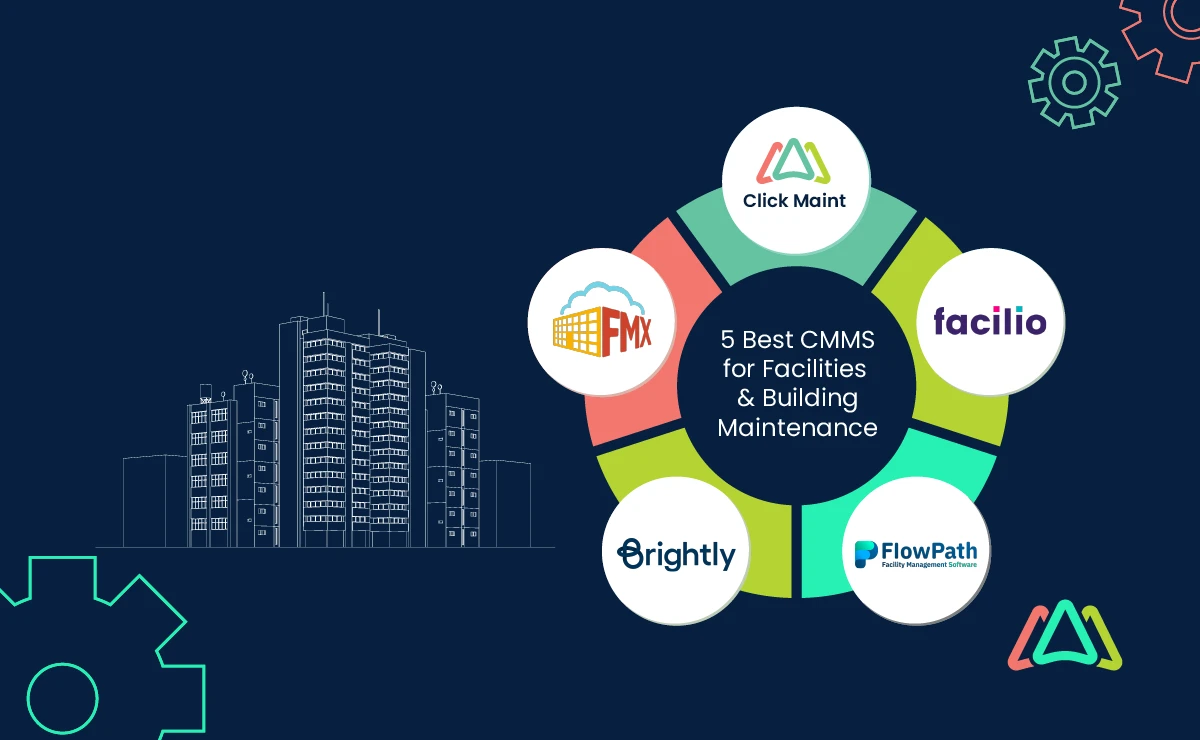Why Facility Management is Critical for Property Long Life
Why Facility Management is Critical for Property Long Life
Blog Article
Secret Fads Forming the Future of Facility Management in 2024
As we look in advance to 2024, the landscape of facility administration is positioned for significant improvement, driven by several crucial trends. The assimilation of wise building technologies and a change towards data-driven decision-making promise to improve functional performance while prioritizing sustainability in technique.
Smart Structure Technologies

Smart structure innovations include a vast array of systems, including smart illumination, cooling and heating controls, and safety systems. By incorporating these systems, center supervisors can check and change parameters in real-time, causing substantial decreases in energy waste and functional prices. Clever sensing units can find tenancy degrees and adjust lights and temperature level appropriately, ensuring that energy is just made use of when needed.
Additionally, these technologies promote boosted information collection, allowing companies to track use patterns and recognize opportunities for further renovations. The implementation of wise building innovations not only adds to sustainability objectives however also produces much healthier workplace that can boost worker efficiency and contentment.
As we relocate right into 2024, the adoption of wise structure innovations will likely increase, showing a more comprehensive change in the direction of even more intelligent, receptive, and sustainable facility monitoring methods.
Data-Driven Choice Making
Progressively, organizations are leveraging data-driven decision making to boost center management methods. By utilizing data analytics, center managers can acquire workable insights that substantially improve operational effectiveness and resource allotment. The integration of innovative technologies, such as IoT sensors and real-time monitoring systems, makes it possible for the collection of vast amounts of information on structure performance, tenancy prices, and energy usage.
This wide range of information enables center managers to identify fads, anticipate maintenance requirements, and proactively address concerns before they escalate. As an example, predictive analytics can forecast devices failings, minimizing downtime and repair work prices. In addition, data visualization tools facilitate much better communication amongst stakeholders, guaranteeing that informed choices are made collaboratively.
Moreover, data-driven techniques boost calculated preparation by making it possible for facility supervisors to examine the effectiveness of existing techniques and make informed options concerning investments in modern technology or facilities. As organizations progressively focus on operational quality, data-driven choice making is poised to become a keystone of successful facility monitoring strategies in 2024 and beyond. Ultimately, the capacity to leverage data properly will equip companies to produce much more effective, productive, and durable facilities.
Sustainability and Green Practices
The focus on data-driven decision making naturally aligns with the expanding concentrate on sustainability and green methods within important source center management. As you can try these out organizations progressively focus on environmental duty, center managers are leveraging analytics to optimize source usage, reduce waste, and lessen carbon impacts. This critical method allows the combination of energy-efficient systems, such as LED lights, smart cooling and heating controls, and renewable resource resources right into center procedures.
Additionally, the execution of sustainable practices extends beyond energy consumption. Center supervisors are promoting and taking on environmentally friendly products recycling campaigns to develop a round economic climate within their centers. This not just boosts the ecological profile of the organization however additionally fosters a society of sustainability amongst workers.
Compliance with ecological guidelines is one more important element driving the adoption of environment-friendly techniques. By utilizing data analytics, facility managers can keep an eye on conformity metrics and recognize areas for renovation, ensuring adherence to international and local sustainability requirements.
Hybrid Job Models
A substantial change in the direction of hybrid work models is reshaping the landscape of center management in 2024. This paradigm combines in-office and remote work, demanding a reevaluation of space use, resource appropriation, and staff member involvement strategies. Organizations are increasingly recognizing the importance of adaptable offices that deal with varied demands and choices.
Center supervisors have to adapt by applying versatile find workplace styles that sustain joint efforts while giving locations for concentrated job. This includes the combination of technology to facilitate seamless communication and partnership amongst remote and in-office staff members. Smart structure options, geared up with sensors and analytics, enable for real-time monitoring of area use, making it possible for organizations to maximize their environments effectively.
Furthermore, hybrid work models stress the need for efficient facility management that prioritizes employee experience. In significance, the crossbreed work model is changing center administration, encouraging a proactive technique to meet the developing demands of the labor force.
Boosted Passenger Health
As companies embrace hybrid work versions, an increased emphasis on owner health is becoming essential to facility monitoring methods. Facility Management. This shift recognizes that a pleased and healthy and balanced labor force straight impacts performance and retention rates. Center managers are currently prioritizing atmospheres that promote mental and physical well-being, integrating elements such as all-natural lighting, biophilic style, and easily accessible wellness sources

Innovation plays a crucial duty in this development. Smart building systems can keep track of ecological variables and readjust setups in real-time, making certain ideal comfort degrees - Facility Management. Responses systems, such as tenancy sensors and worker surveys, enable center supervisors to consistently improve wellness initiatives based on resident demands.

Verdict
In 2024, the future of facility administration will be considerably affected by the integration of smart structure modern technologies and data-driven decision-making, cultivating enhanced functional efficiency. These fads jointly underscore the evolving landscape of facility administration in response to contemporary obstacles and chances.
Facility managers are promoting and taking on green materials recycling initiatives to produce a round economic climate within their centers.A considerable change in the direction of hybrid job versions is reshaping the landscape of center monitoring in 2024.Moreover, hybrid work versions highlight the need for efficient facility administration that focuses on staff member experience.As companies embrace hybrid work versions, an enhanced focus on resident health is ending up being indispensable to facility monitoring methods.In 2024, the future of center management will certainly be dramatically influenced by the combination of smart building technologies and data-driven decision-making, promoting enhanced operational effectiveness.
Report this page